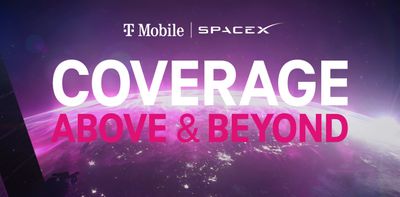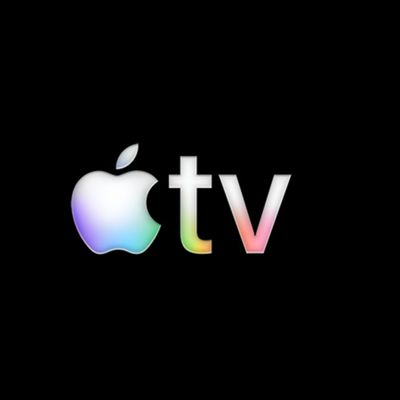T-Mobile and SpaceX today announced a plan to offer smartphone connectivity nearly anywhere in the U.S. with a new "satellite-to-cellular" service.

The new technology will leverage SpaceX's second-generation Starlink satellites in low Earth orbit and T-Mobile's nationwide mid-band 5G spectrum to provide "near complete coverage" in most areas across the U.S., in addition to territorial waters. If successful, the technology would eliminate "mobile dead zones" and keep customers connected beyond the reach of cell towers, which would be especially helpful in emergency situations.
T-Mobile and SpaceX said they hope to establish reciprocal roaming agreements with international carriers to offer the service globally in the future.
"The important thing about this is that it means there are no dead zones anywhere in the world for your cell phone," said SpaceX CEO Elon Musk, in a press release announcing the plan. "We're incredibly excited to do this with T-Mobile."
Below, we've outlined some key details about the T-Mobile and SpaceX plans and what the launch of the service will mean for iPhone users.
Will the satellite connectivity work with iPhones?
T-Mobile said the "vast majority of smartphones" already connected to its network will be compatible with the new "satellite-to-cellular" service, and this will presumably include iPhones. We've reached out to T-Mobile and Apple for clarification, but the companies did not immediately respond to our requests for comment.
T-Mobile said satellite connectivity will use a smartphone's existing cellular chip and will not require a Starlink terminal or any other hardware.
Will the satellite connectivity require an iPhone 14?
As mentioned above, T-Mobile said the "vast majority" of existing smartphones will be compatible with its satellite connectivity service right out of the box, so it does not sound like the feature will require Apple's upcoming iPhone 14 models.
Bloomberg's Mark Gurman has reported that iPhone 14 models could feature satellite connectivity for emergency use, but he said that Apple's partner would likely be satellite company Globalstar, rather than SpaceX, so the feature may be unrelated.
During a press event in Texas, T-Mobile CEO Mike Sievert also said that the carrier has yet to start working with other companies on how they will integrate the technology, further suggesting that Apple is not currently involved with the plans. Of course, Apple could choose to partner with T-Mobile and SpaceX to fully support the service on iPhones in the future, even if the companies have yet to discuss the matter.
Given the service will leverage T-Mobile's mid-band 5G spectrum, it's possible Starlink satellite connectivity will require an iPhone 12 or newer, but we'll have to wait for the companies to share additional details about the technology.
There is still a possibility that Apple will announce a similar satellite connectivity feature for the iPhone 14 in partnership with Globalstar, and perhaps it would work with more carriers than just T-Mobile at launch. Earlier this week, Apple announced that it will be holding a media event on September 7 with the tagline "Far Out" and starry sky artwork, fueling speculation that Apple has a satellite connectivity announcement planned.
How will the technology work?
SpaceX plans to have a constellation of second-generation Starlink satellites in low Earth orbit with advanced antennas that smartphones can connect to via T-Mobile's mid-band 5G spectrum without any additional hardware. T-Mobile said the service will provide "nearly complete coverage almost anywhere a customer can see the sky," and Elon Musk said the service should work when a person has the phone in their pocket or is in a vehicle.
What is the purpose of satellite connectivity?
T-Mobile and SpaceX said the satellite-to-cellular service is designed primarily for areas without existing cell network coverage, to eliminate mobile dead zones. The service is not intended to be a substitute for much faster cell networks in urban and suburban areas, but instead will ensure that people can stay connected in areas without cell towers for basic communication by text message and eventually phone calls.
When and where will the service launch?
T-Mobile and SpaceX plan to launch the service in beta by late 2023, starting in select areas of the U.S. The service will eventually cover most areas of the continental U.S., Hawaii, parts of Alaska, Puerto Rico, and U.S. territorial waters.
T-Mobile and SpaceX said they hope to establish reciprocal roaming agreements with international carriers to offer the service globally in the future.
How much will the service cost?
T-Mobile CEO Mike Sievert said the carrier plans to offer Starlink satellite connectivity on its "most popular plans" for no additional charge. For some lower-priced plans, Sievert said T-Mobile may charge a monthly fee to access the service, with pricing that would be "far less" expensive than existing satellite service providers.
Will the service work for phone calls and text messages? What about iMessage?
Starlink's direct satellite connectivity to smartphones will initially work with SMS and MMS text messages and "participating messaging apps," according to T-Mobile and SpaceX. The announcement did not name any participating messaging apps, so it's unclear if Apple's iMessage service will be supported at launch.
In the future, the companies plan to "pursue the addition of voice and data coverage" for phone calls, web browsing, and more, but speeds would be limited.
How fast will the satellite connectivity be?
Second-generation Starlink satellites will be able to provide data speeds of up to 2-4 Mbps to each cell zone, which would be suitable for text messages and eventually phone calls when supported, according to Elon Musk.
Exact speeds would depend on how many T-Mobile customers are simultaneously using the service in a given cell zone. If a cell is not very busy, Musk said there is the potential that users could play "a little bit" of video in the future, but the service is not intended for this sort of usage and is instead designed for basic communication.




















